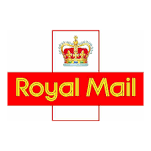
Royal Mail has released its Q3-2021 results and provided further information on the progress of its transformation programme in the UK.
As far as the three months ending December 2021 were concerned, the company reported overall revenue performance broadly in line with its expectations. It added that the COVID-19 pandemic had resulted in a structural shift, with a permanent step up in the level of domestic parcel volumes compared to pre-pandemic levels.
Royal Mail
Overall, the company reported a slower than expected increase in volumes around Black Friday, although December saw stronger growth, driven by a pick-up in B2C volume in the run up to Christmas. In addition, Royal Mail was able to respond to Government requests to increase capacity for the delivery of COVID-19 testing kits due to increased demand. Test kits accounted for around a mid-single digit percentage of total parcel volume in the first 9 months.
During Q3-2021, the company handled 439m of parcels. Domestic parcel volumes increased by 33% when compared to Q3 2019-2020 but fell by 7% year-on-year (y-o-y), given lockdown restrictions were successively reimposed during the prior period. Q3-2021 domestic parcel revenue grew by 43.9% when compared to Q3 2019-2020 due to volume growth and positive price/mix but decreased by 4.9% on a yearly basis.
Total parcel volumes increased by 15% when compared to Q3 2019-2020, but fell by 11% y-o-y, impacted by weakness in International as a result of a number of factors previously outlined including increased customs processing and conveyance costs. Total parcel revenues grew by 29.7% when compared to Q3 2019-20. y-o-y revenues decreased by 9.4%, primarily due to lower volumes, partially offset by positive product/channel mix.
During the quarter, overall Royal Mail revenue decreased by 5.8% y-o-y but grew by 9.8% over two years. With the rising incidence of positive COVID-19 tests from the Omicron wave, absence rates remained elevated during Q3-2021 vs. the prior year and increased over Christmas and into early January 2022. This has resulted in increased costs and impacted quality of service in some areas of the country.
Looking ahead, the company stated that it is still navigating uncertainty over the evolution of the COVID-19 pandemic and current Omicron wave, consumer behaviour, and economic factors such as GDP growth and inflation. It expects month-on-month fluctuations in parcel volumes, including test kits given periodic changes to Government guidance on testing. As expected, the operational gearing benefit seen in the first half is starting to unwind.
As it is not possible to predict how long the operational impacts of Omicron will persist as the operation recovers, the in-year benefit from the Pathway to Change agreement is expected to be in the range of £55m to £80m, depending on how fast the operation recovers from Omicron. The company added that overall performance has been in line with previous guidance of around £500m adjusted operating profit for FY2021-22.
For FY2022-23, the company continues to build its commercial plan to target growth opportunities and share in a market that it anticipates will still be in transition from COVID-19. As a result, it is focusing on progressing its transformation and efficiency plans to mitigate expected cost pressures and sustain profitability, with around £220m of savings now identified.
GLS
Volume growth in Q3-2021 was 5% y-o-y, a slowdown as expected from the first half of the year. Growth was 34% compared to Q3 2019-20, a slight improvement compared to the trend seen in the first half of the year.
Revenue growth was 4.5% y-o-y and 35.2% when compared to Q3 2019-20.
Cost headwinds are being experienced in both GLS’s European and North American businesses driven by higher inflation rates and a limited pool of available line-haul and delivery drivers. Measures to protect margin through pricing initiatives and improved efficiency are being implemented. The company believes that the combination of specific pricing actions, service quality and targeted efficiency measures that are being undertaken will allow it to deliver full year revenue growth of around 4%, and an operating margin of about 8%. This equates to an operating profit of about €400m.
The acquisition of Rosenau Transport in Canada was completed on 1 December 2021 after having received regulatory approval. The company is confident that the planned synergies with the existing GLS Canada business can be secured.
Source: Royal Mail